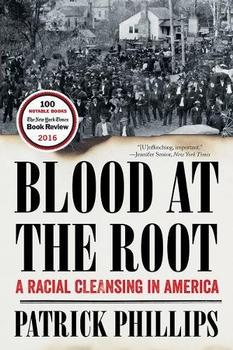Summary | Excerpt | Reviews | Beyond the Book | Readalikes | Genres & Themes | Author Bio

Critics' Opinion:
Readers' Opinion:
First Published:
Sep 2016, 320 pages
Paperback:
Sep 2017, 320 pages
 Book Reviewed by:
Book Reviewed by:
Mollie Smith Waters
Buy This Book
INTRODUCTION
LAW OF THE LAND
All night, as Mae Crow drifted in and out of consciousness, searchers called through the pines, the sound of her name rising and fading into the drone of the tree frogs. There, in the woods along the Chattahoochee River, in the Appalachian foothills north of Atlanta, she'd been beaten and left to die, and now lay too bloodied and breathless to answer. Near dawn, as the first rays of sunlight dappled the gulley, a farmer who'd known Mae all her life came stamping down a narrow footpath. He stopped in his tracks, turned, and hollered for the others to come.
By the next day—September 10th, 1912—the Forsyth County sheriff had arrested three young black suspects. And while it would take two months and three separate deployments of the Georgia National Guard before Ernest Knox, sixteen, and Oscar Daniel, eighteen, were formally tried, convicted, and sentenced to hang, for the third prisoner, a 24-year-old man named Rob Edwards, death came quickly. When a rumor spread that "Big Rob" had confessed to the crime, a group of white farmers stormed the county jail and, according to one witness, shot Edwards as he cowered in his cell, then bashed in his skull with crowbars. Others say Edwards emerged alive, pleading for mercy, and died while being dragged
from the back of a wagon, a noose cinched tight around his neck. As spectators streamed toward the town square, someone lobbed a rope over the yardarm of a telephone pole and hoisted Edwards's limp body skyward. People took turns with pistols and shotguns, and each time a load of buckshot spun the mutilated corpse, the crowd of hundreds roared.
There was nothing unusual about the lynching of a black man in Georgia in 1912, and the next morning the sight of Edwards's body, laid out on the courthouse lawn, seemed to satisfy those most hungry for vengeance. But a few weeks later, newspapers reported that Mae Crow, known as one of the most beautiful girls in all of Forsyth, had weakened and died from her injuries at the age of eighteen. On the day of her funeral, groups of white men gathered at crossroads all over the county. They talked quietly on the porches of country stores and huddled in the dusty thresholds of barns. At the graveside they held their hats over their hearts, eyes blazing as they watched Mae's mother, Azzie, weep over the casket. They were quiet and respectful all afternoon, according to one schoolmate of Mae's. But when darkness fell, she said, "all hell broke loose" in Forsyth County.
That was the night bands of white men set out on horseback, riding toward the little clusters of cabins that dotted the woodlands and pastures along the river. Using posted notices, scrawled letters, rifles, torches, and sticks of dynamite, they delivered a message to their black neighbors—including many they had known and worked with all their lives. The black people of Forsyth could either load up and get across the county line before the next sundown, or stay and die like Rob Edwards.
By the end of October, the night riders had forced out all but a handful of the 1,098 members of the African American community—who left in their wake abandoned homes and schools, stores and livestock, and harvest-ready crops standing
in the fields. Overnight, their churches stood empty, the rooms where they used to sing "River of Jordan" and "Go Down Moses" now suddenly, eerily quiet.
The purge was so successful that within weeks there was no one left for the mobs to terrorize, and whites who had either taken part in the raids or simply stood aside as they passed now settled back into the rhythms of farm life. They shooed stray livestock into their own pens, milked their neighbors' lowing cows and slopped their starving hogs, and at family tables they bowed their heads and said grace over the last of the meat raised by black hands. Eventually they picked the leaning corn rather than watch it all go to waste. And when, years later, the last remaining "Negro cabins" collapsed, they salvaged the boards and tore down the rotten fence posts that had once marked a border between black and white land.
Excerpted from Blood at the Root by Patrick Phillips. Copyright © 2016 by Patrick Phillips. Excerpted by permission of W.W. Norton & Company. All rights reserved. No part of this excerpt may be reproduced or reprinted without permission in writing from the publisher.





The House on Biscayne Bay
by Chanel Cleeton
As death stalks a gothic mansion in Miami, the lives of two women intertwine as the past and present collide.

The Flower Sisters
by Michelle Collins Anderson
From the new Fannie Flagg of the Ozarks, a richly-woven story of family, forgiveness, and reinvention.

The Funeral Cryer by Wenyan Lu
Debut novelist Wenyan Lu brings us this witty yet profound story about one woman's midlife reawakening in contemporary rural China.
Your guide toexceptional books
BookBrowse seeks out and recommends the best in contemporary fiction and nonfiction—books that not only engage and entertain but also deepen our understanding of ourselves and the world around us.